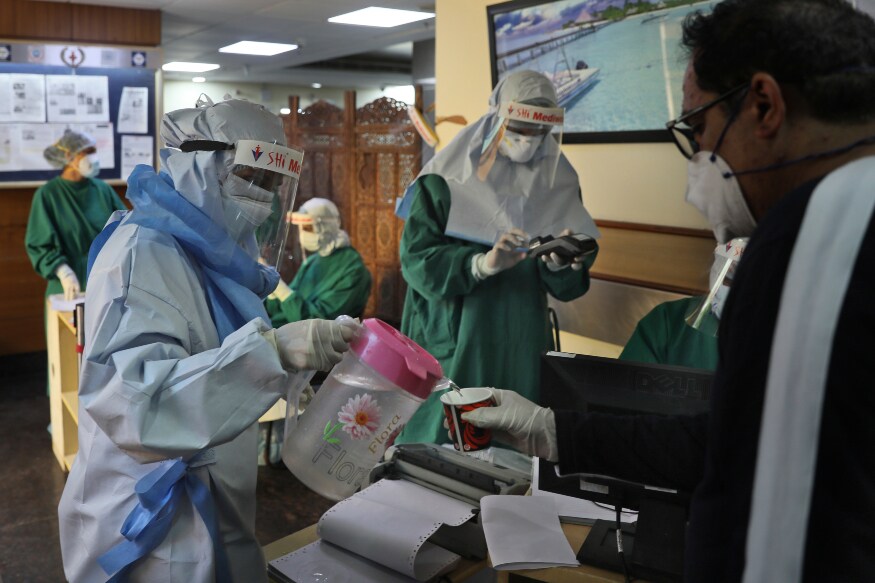
As Delhi prepares to reopen weekly markets, restaurants, and hotels, the capital has seen a steady increase in the number of Covid-19 cases. However, unlike June when strict social distancing measures were put in place, it is now in Unlock mode. Furthermore, patients from beyond the borders of Delhi are also constantly arriving for treatment. Of the 14,000 beds, 4,500 are occupied, of which approximately 30%, or 1,500 patients, are not residents of Delhi.
In an exclusive interview with CNN-News 18’s Rupashree Nanda, Delhi’s Health Minister Satyendar Jain spoke on a variety of topics including new challenges facing the Delhitas and the AAP government in their fight against Covid- 19.
Q. Cases are expected to reach 3,000 soon. Will there be a second wave in Delhi?
Satyendar Jain: This is not about touching the 3000 mark. We have started testing very aggressively. Yesterday, we had performed between 32,000 and 33,000 tests. Today, we can approach 40,000. We are testing very aggressively. And our goal is that not a single person who can be positive is left untracked so that the same person does not spread the disease further. It is possible that in a week, 10 days, or a little longer, the case count will begin to decline.
Q. So your reading is that more cases are being reported because you are testing more?
Satyendar Jain: Aggressive testing is the main reason. There is an element of fatigue. People do not wear masks, so there is a greater chance of contracting the disease.
Q. Hasn’t SDMA recommended increasing fines in cases where people are not wearing masks?
Health Min, Satyendar Jain: Fines are already being imposed. Now it is 500 rupees. And that will continue.
Q. In addition to testing more aggressively, what other steps is the Delhi government taking to control the spread of the coronavirus?
Satyendar Jain: In Delhi, an average of 16,000 to 17,000 tests were performed per day. Today there are 38,000. So it’s more than double what it used to be. So we tested as many as possible. The Mohalla clinics are also being used as testing centers. This is to increase the number of testing centers. Therefore, the testing facility is available in all 265 dispensaries and in all hospitals.
Q. The last time Delhi saw a case count of around 2,500-3,500, there was a partial shutdown. The patients on the other side of the borders were also fewer. But now, the capital city is in Unlock mode and 50% of ICU beds in private hospitals are occupied by patients from outside …
Satyendar Jain: A lot of patients in private hospitals are from outside of Delhi. In some hospitals, when we checked, we found that 50% to 70% of the patients were from outside of Delhi.
Q. What about government hospitals? And is that of concern to the Delhi government, given that the cases within Delhi are also increasing?
Satyendar Jain: In total, 30% of the patients are from outside Delhi. Yes, this is a concern: how can we increase the capacity of beds as much as possible? Right now, the situation is under control. But we don’t want a situation where, if occupancy increases, there is a problem.
Q. What are the details of the third sero survey in Delhi?
Satyendar Jain: This sero survey began on September 1. Over the next day or two, sample collection will be completed. In the next ten days, the results will be published. Samples are collected both by district and by neighborhood. The sample size is 17,000.
Q. How have serosurves impacted Delhi’s Covid-19 strategy?
Satyendar Jain: The impact was that we decided to maximize the tests. That decision was made only after observing the result of the serological survey.
Q. Delhi is now almost in full unlock mode: bars, restaurants, pubs and hotels will reopen. Metro will restart. Is the government ready?
Satyendar Jain: When there was a closure, even then the cases increased. The most important point is that if you wear masks, you can be protected to a great extent.
Q. He has been a Covid-19 patient and a critical case. What would you say to people?
Satyendar Jain: I urge people to take precautions and be cautious. Many people are not afraid. They may get a crown and recover too. But this is not the right attitude. You may have recovered because your immunity levels are good. But you will be a carrier. In your own home you will have parents, elderly people, a child or someone who is already sick. It could be life threatening. It is important to protect yourself and protect others.
Q. Were you afraid during treatment?
Satyendar Jain: No, he was not scared. I did not feel any acute difficulty. The doctors were more scared than I was. However, after returning home, I faced many difficulties related to my health.
.